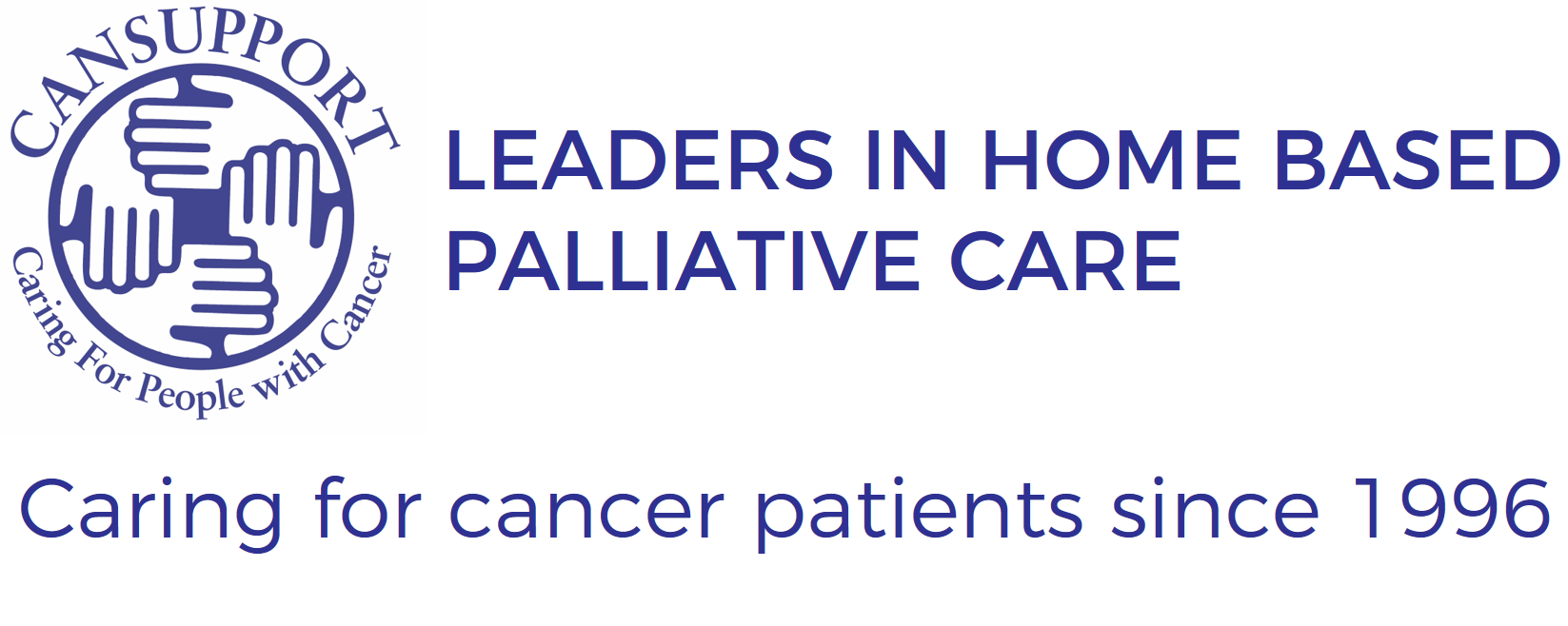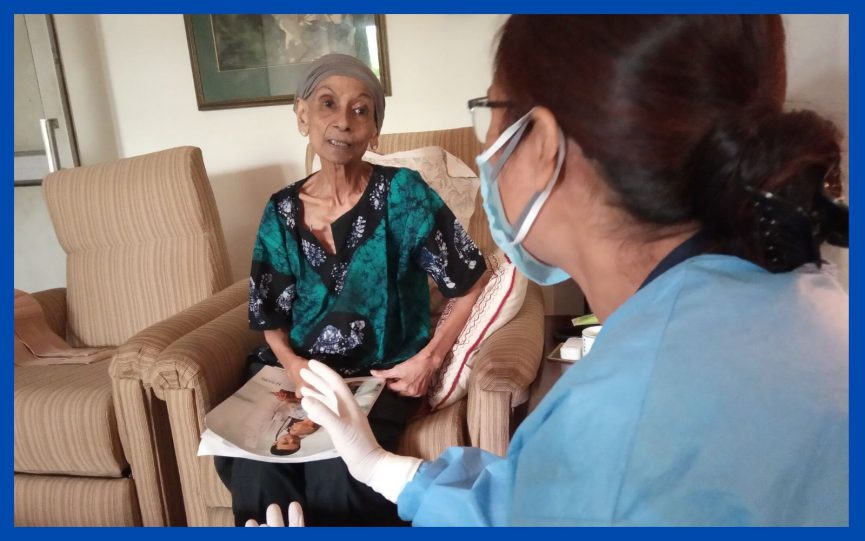Article by: FST Team
We all know that psychosocial and spiritual/religious distress has always existed but there has been a path plastic? effect of pandemic on these problems. During Covid-19 all religious places such as temples, gurudwaras, mosques and churches were closed indefinitely. There was no access to any priest, pundit or maulvi to perform the last rites and wishes of a dying patient. Our counsellors provided telephonic counselling for the spiritual as well as religious care of these patients.
Below is the account of the usual practices that we have been following at CanSupport for providing spiritual/religious care. While these prior practices have been modified to provide care through tele-counselling during lockdown, the pattern of our counselling is more or less the same.
A unique aspect of spiritual/religious counseling in India is that it has a rich, diverse religious culture, with people of many different faiths (Hinduism, Islam, Sikhism and Christianity) living together. With this in mind, the spiritual/ religious care of cancer patients and their families involves valuing individuals, affirming their uniqueness, and accepting their personal values, beliefs, and attitude to life: In simpler terms, this means the acceptance of an individual in totality.
While counselling, our counsellors also ensure that patients define the territory of their spiritual/religious care, whether that means the patient’s spiritual/religious needs are openly expressed, or felt internally.
As per CanSupport’s counseling practice principles, exploring and understanding a patient’s spiritual/religious needs entail being culturally sensitive and respectful to the patient’s wishes and include his/her preferences, needs, and values in all decisions that are made.
This means that each approach is unique as per the individual patient. However, the list below gives a broader overview of some of the often-asked questions, concerns, and actions that our counsellors witness from patients:
“Why me?”
“What is the meaning of life and death?”
“Why is there pain and suffering?”
“Is there an afterlife?”
“Why has God made me suffer so much?”
“Is my illness a punishment of my karma?”
“What can I do to make peace with God?”
“Will I see God?”
“I must be very bad.”
“What is my accomplishment in life?”
“What will happen to me after I die?”
“Will I be remembered?”
“Will I be missed?”
Reflecting over the course of one’s life
Forgiving oneself and others and obtaining forgiveness
To love and to be loved
To live with dignity till death
Saying good-bye to loved ones
In palliative care settings in India, it is often the family and the palliative care counsellor that compassionately care for the patients’ spiritual/religious needs: addressing these issues increases the patients’ comfort and understanding of their life, both during their illness and the process of dying.
Our personalized spiritual/religious assessment helps the patient and their caregiver understand their situation and their spiritual path through a variety of methods. To improve and strengthen the patient’s spiritual well-being, our counsellors provide a safe space for the patient to share his/her spiritual fears and doubts.
Counsellors also encourage the patient to use methods that are spiritually strengthening, such as praying, chanting, and listening to spiritual discourse. The counsellor sometimes also provides spiritual books and reads from religious texts.
Most importantly, we give the patient an opportunity to discuss spiritual issues with their family members and friends, including interpersonal issues like forgiveness and unresolved conflicts. We also involve the family in counsellor-patient’s discussions of death and the afterlife as part of a self-reflection process (through the patient’s specific belief system), which helps him/her to feel comfortable spiritually and to be at peace with himself/herself.
By discussing the feeling of helplessness and fear faced by the patient and helping to resolve interpersonal conflicts, our counsellors help the patient view their imminent death more realistically. Even after the death of the patient, we continue spiritual/religious communication with the bereaved family members.
This is because we have found that continued spiritual/religious counselling protects the patient and later, their family, from the effect of social isolation, giving a sense of belonging, self-esteem and collective strength during times of adversity. For both the patient and their family, our counselling helps to induce calm, improve concentration, and create a sense of well-being.
In order to provide the best spiritual/religious care possible, our counsellors are very cognizant of the demographic composition of the areas in which they operate. A majority of our patients are either Hindus or Muslims, so even basic knowledge of these different religious traditions by our counsellors is very beneficial as it helps cancer patients and their families.
Equipped with such knowledge, our counsellors are better prepared to help patients and their families go through the trajectory of illness and to face death with the greatest degree of acceptance and equanimity. Our own understanding of the patient’s religious feelings may often add something very significant; in fact, we believe that this understanding can actually increase the degree of comfort that the patient gets from their faith.
However, our counsellors know that faith is always personal and worthy of respect, even if we disagree with some of its teachings - we never force anything on our patients as we realize that people following religious faiths vary a good deal in their attachment to their religion. Some are deeply committed, while others are very casual or nominal adherents.
One unique aspect of CanSupport’s spiritual/religious counseling is the diverse Indian setting in which it is based - a monolithic Western model of spirituality may not be appropriate to the lived experiences of most of our patients.
For example, the Hindu belief in the cycle of rebirth that many of our patients believe assigns a moral significance to their suffering, framing it as their journey towards moksha (the ultimate liberation of the soul).
Additionally, ritualized worship or “pooja” (prayer) is vital to Hindus. Worshiping the image of a deity, which is the physical personification of an attribute of God, helps a Hindu connect with the supreme soul (or Atman). Using the Hindu concept of Dharma (duty), our counsellors know that compassion and care for patients is their duty, and to offer good religious care, they take all these personalized spiritual aspects into account.
The counsellors become exceptionally alert to the patient’s behavior, constantly looking for clues as to whether or not the patient’s basic needs of privacy are adequately being met - patients need this privacy and dedicated spiritual time in order to properly observe their religious practices.
Other thoughtful, practical actions that our counsellors take is to include maintaining contact with religious gurus and providing a collection of literature on religious matters. These actions promote sensitivity and empathy with the patients during the emotional moments such as end of life, while also respecting their beliefs and traditions related to death.
Patients get satisfaction through religious tasks, such as performing prayers, doing rituals, visiting the temple, etc. They are able to accept their situation by having framed photos of God placed in their room, allowing them to explore their beliefs and reconcile their diagnosis, with the counsellor’s help.
Unfortunately, some also consider their illness as a manifestation of their karma (past deeds) and believe that their diagnosis is a result of past sins. To discourage these negative coping mechanisms, our counsellors actively help patients accept their illness and achieve peace with themselves and with God.
Our counsellors also talk to the patient’s family about the religious wishes of the patient so that both the patient and their family are comfortable with the fulfillment of the patient’s last wishes.
When nearing death, some patients also share their feelings, thoughts, and philosophy about salvation and rebirth to our counsellors, and we always give them an open ear so that they feel relaxed and are able to be more comfortable with their passing.
Revisiting the concept of unique religious practices, we have found that many patients also share their wish to die on certain auspicious days or at specific times, which they believe will allow them to reach heaven. For example, many of our Muslim patients’ families offer prayers for the dying patients, facing towards Mecca. The month of Ramadan also has a special significance for dying patients because as per the Muslim tradition, Ramadan is an opportunity to personally reconcile with God so many express a wish to die during the month of Ramadan.
Our counsellors treat these myriad practices and beliefs among our patients with the utmost sincerity and respect.
Sharing one such story during lockdown:
One patient had come from MP for his cancer treatment in Delhi. The patient wanted to see his loved one before dying. It was very difficult for the team to send him to his village at this time of lockdown. The counsellor took the initiative and said that she can make a video call to his family, so that he could see and speak with them. After his death the caregiver could not find a priest for his last rites. The counsellor suggested if they have a priest in the village who could virtually conduct his last rites. Finally, the prayers were performed on a video call and his last rites were performed according to their belief system.
All such experiences of our counsellors reaffirm the value of faith, hope, and compassion in the process of healing.
References:
Counselling and Palliative Care, A hand book for counsellors - Sr. Agnes Panikulam, MMS
Death and Bereavement Across Cultures, by Colin Murray Parkes, Pittu Laungani, Bill Young
Biomedical Ethics-Olinda Timms
Bioethics: An Anthology- Helga Kuhse, Peter Singer
Good Practice in Palliative care – David Oliviere, Rosalind Hargreaves and Barbara Monroe

